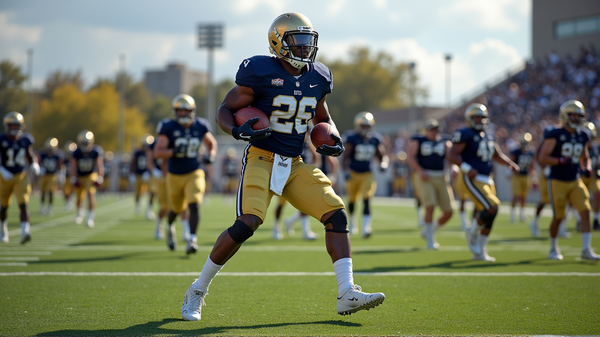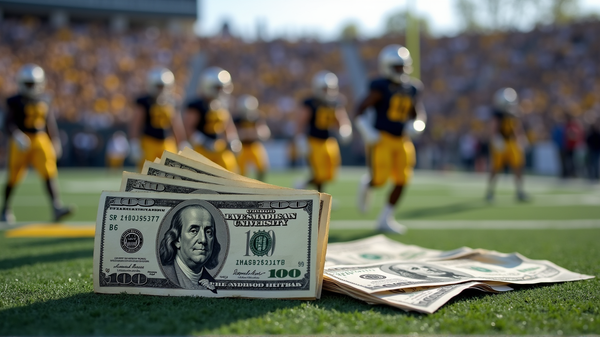Is College Football Heading for a Private Takeover? Big Changes Could Be Ahead
In a world where football players are treated like rock stars and campus stadiums hold more spectators than some professional arenas, college football is thriving. But behind the marching bands and painted faces lies an economic conundrum that could soon alter the landscape of college sports entirely. The prospect of colleges selling their football teams to private investors looms ever closer, raising eyebrows and sparks debates about what this new reality could bring.
The Dilemma of College Sports Economics
Virginia Tech is among many institutions feeling the strain of maintaining a reputation not just for academic prowess but also athletic achievement. Their new football coach’s $8.2 million salary dwarfs that of top professors, illustrating a striking funding imbalance. Yet, fans aren’t coming to watch a lecture on sustainable materials; they’re here for the thrill of the sport.
With students at institutions like Virginia Tech paying hefty fees to support athletics, the question arises: Could private investment be the key to expanding revenue streams and reducing student financial burdens?
How Private Equity Sees the Field
The concept of private firms taking control of college sports isn’t purely theoretical. Private equity is already eyeing ways to invest in and profit from college athletics. While a potential deal between Florida State and private firm Sixth Street fell apart, this hasn’t deterred other schools like Boise State or conferences such as the Big Ten from considering similar arrangements. As stated in Cardinal News, private equity anticipates a profitable future in college sports investment.
A Possible New Game Plan
Imagine a scenario where private companies manage teams, covering hefty player salaries and directing innovative revenue strategies. Schools could retain trademarks and traditions, while entrepreneurs develop exciting new ways to cash in on sports’ popularity. Investment in professionalizing aspects of non-revenue sports like golf could open untapped revenue veins.
Conservatives might champion these changes for their market-driven solutions, while liberals could appreciate the freeing up of public funds for other uses. It seems this might create a win-win for various stakeholders, including students and athletes who may find enhanced financial opportunities.
The Path Forward: Blending Tradition with Modern Economics
While the idea is still speculative, it’s supported by sports figures like Gordon Gee, who advocate for legislative adjustments to open new revenue paths. Gee suggests the solution lies in a centrally coordinated sports schedule and unified broadcasting negotiations.
Despite potential pros and cons, the potential for increased revenue must be taken seriously in our evolving sporting environment. College football, a fan favorite boasting viewership rivaling major leagues, is economically underperforming relative to its cultural impact. The road to revamping this with private investment could lead to unprecedented financial prosperity.
In conclusion, while massive changes in college sports loom large, the alluring promise of increased revenue and reduced student fees could prove enticing enough to see this bold idea become reality. As institutions reflect on the balance between maintaining academic integrity and expanding their sporting achievements, the gaze of private equity rests firmly on the prize, ready to rewrite the rules of the game for a dynamic 21st-century sports model.




